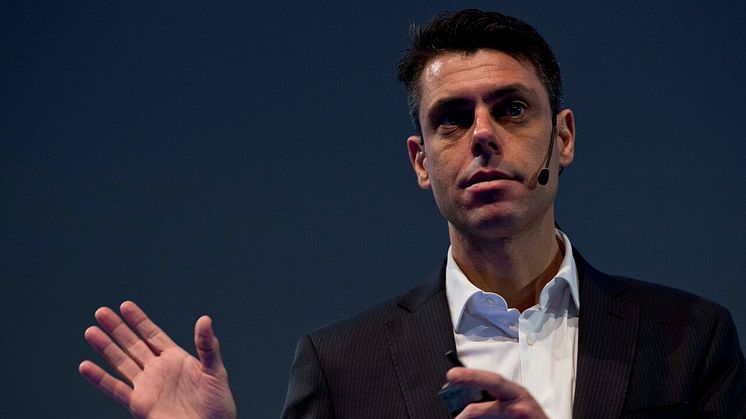
News -
The implications of the digital revolution for the financial services sector
“There are five billion mobile users around the world, more than half of them using smart phones. Social media surpasses any other internet activity. On average, in America, a person spends six hours per day on web, mobile and social. In Asia, the numbers are even higher,” said Moshe Tamir, Global Head of Digital Transformation at Generali, speaking at the Discovery Financial Planning Summit on 29 May 2017 at the Sandton Convention Centre. Generali is the world’s third largest insurance firm and a member of the Global Vitality Network, in the process of rolling out Vitality in Europe.
In South Africa, there are 80 million mobile subscribers and the average user spends three hours per day on his / her device.
This digital migration, Tamir noted, is driving exponential growth in innovation globally. Previously, world-shifting developments like the printing press and the telephone might happen every hundred years or so. Today, new technologies are released on an almost weekly basis.
Tamir quoted former Google CEO Larry Page, who famously said, “We are no longer living in a mobile-first world, we are in a mobile-only world.”
Technology has fundamentally shifted the way we live, from our communications to entertainment and how we do business, and it’s reinventing financial services. As an example, Tamir cites Lemonade – an insurance company shaking up the industry. The company’s app gives users an end-to-end mobile experience with the brand – something Tamir terms a “pure mobile” experience.
Another company that has put the power of technology – specifically social media – to use is eToro, a social trading and multi asset brokerage company, with 4.5 million users in more than 170 countries worldwide.
All of this points to the fact that there is a massive shift in customer expectations, Tamir says. “People want a mobile experience.”
Yet, despite innovators like Lemonade and eToro, Tamir believes financial services are generally lagging behind in meeting these expectations, due to factors like regulation and legacy systems. There is a gap between where customers are spending time and where financial services businesses are focusing their value proposition.
Tamir says the sector needs to move from an adviser-led, linear sales process to a customer-led, digital one. While trust remains important, he notes the process from researching to purchasing happens digitally.
For example, customers might research a financial planner on Google. If the information they find is outdated or inadequate, they will move on to someone else. If they like what they see, however, they will reach out, via text, chat or email. They’ll then learn further on YouTube and only near the end of the process, arrange a meeting where the deal is done. After that, they will review and refer via digital channels.
What this means is that firms need to adapt by building tools for advisers to interact with clients across digital channels. Many have created ways for clients to communicate with the company, but many are still missing the ability for clients and advisers to communicate.
While Tamir says that trust is a critical element of financial services’ value proposition, humans can’t compete with algorithms when it comes to capturing information. He suggests leaving support functions to humans, where trust is required, and to leverage technology for the advantages that it can offer elsewhere.
If done correctly, this actually ensures that personal interactions become even more valuable.






